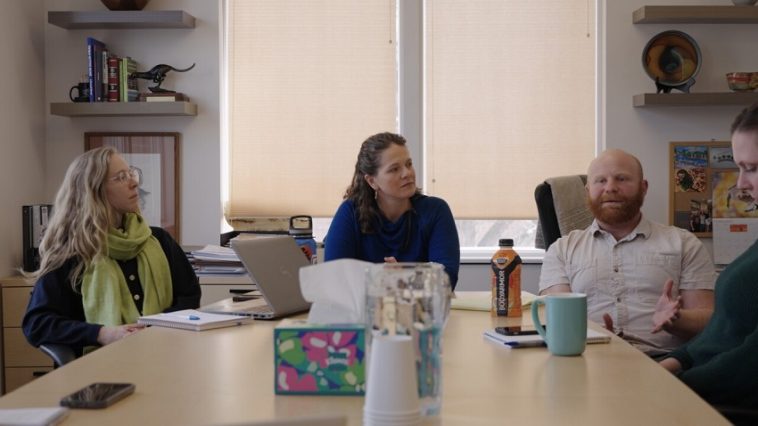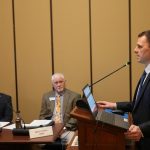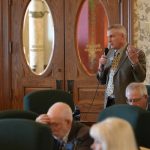In a remarkable effort to address homelessness, the City of Missoula recently completed a 60-day housing sprint aimed at securing permanent housing for unhoused veterans. The initiative, in partnership with the national non-profit Built for Zero, resulted in the housing of 12 veterans, surpassing the goals of several other cities competing in the program. This success, however, is clouded by uncertainty regarding the future of federal funding, which has played a critical role in the city’s ability to provide these services.
The housing sprint, which targeted a cohort of 15 veterans, was made possible through a $30,000 grant from Built for Zero. The city’s success was due in part to its ability to hone in on the specific needs of the veteran population, allowing for a focused, strategic approach. Dylan Barbash, a Built for Zero specialist with the City of Missoula, was instrumental in reaching out to landlords and navigating the often difficult process of securing housing for individuals facing multiple barriers.
“One of the key aspects of our approach was building relationships with landlords and ensuring them that if someone says they can pay for housing, we trust them at their word,” said Barbash. Despite facing challenges, particularly with individuals on the sexual offenders list—a permanent record in the state of Montana—persistent efforts paid off. The city was able to overcome these obstacles, finding housing for the majority of those targeted.
Missoula’s housing sprint was part of a national competition that involved five other cities, but Missoula’s success stood out. “We focused on 15 people and got 12 out of those 15,” Barbash said proudly.
Missoula Mayor Andrea Davis expressed excitement about the program’s success, highlighting how the city’s targeted, detail-oriented approach helped create lasting change for those involved. “It was interesting to read the case study about this, and knowing that our community is involved in this is really exciting,” she said.
However, with success comes uncertainty. While the project received significant support from federal funding sources, particularly from programs like HUD VASH, city officials are wary of the future. Emily Armstrong, the City of Missoula’s houseless programs manager, noted that the potential loss of federal funds would have a severe impact. “If we lose HUD federal funding, it will be a very significant shift in what we’re able to do. No amount of contingency planning will be able to save us from that reality,” Armstrong said.
The city is now looking ahead to a potential shift in its approach. With the looming threat of reduced federal funding, Missoula officials are exploring more community-driven solutions. These may include leveraging local volunteers who could help with tasks such as making calls to individuals entering housing or assisting with apartment applications.
While the future remains uncertain, Missoula’s housing sprint offers a promising model for other communities looking to address homelessness, especially among vulnerable populations like veterans. However, its long-term viability will depend on both community support and the city’s ability to navigate potential funding challenges.



